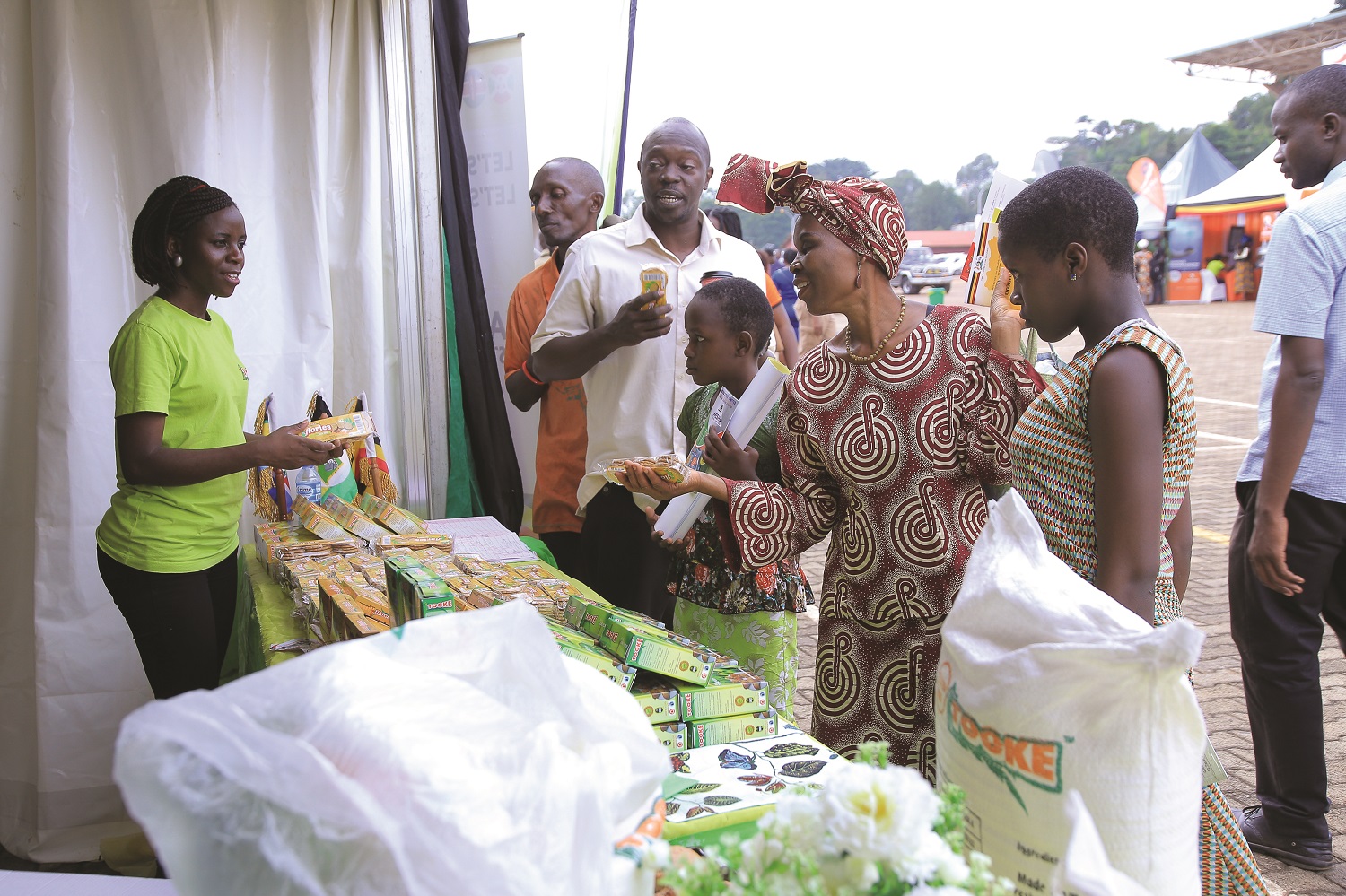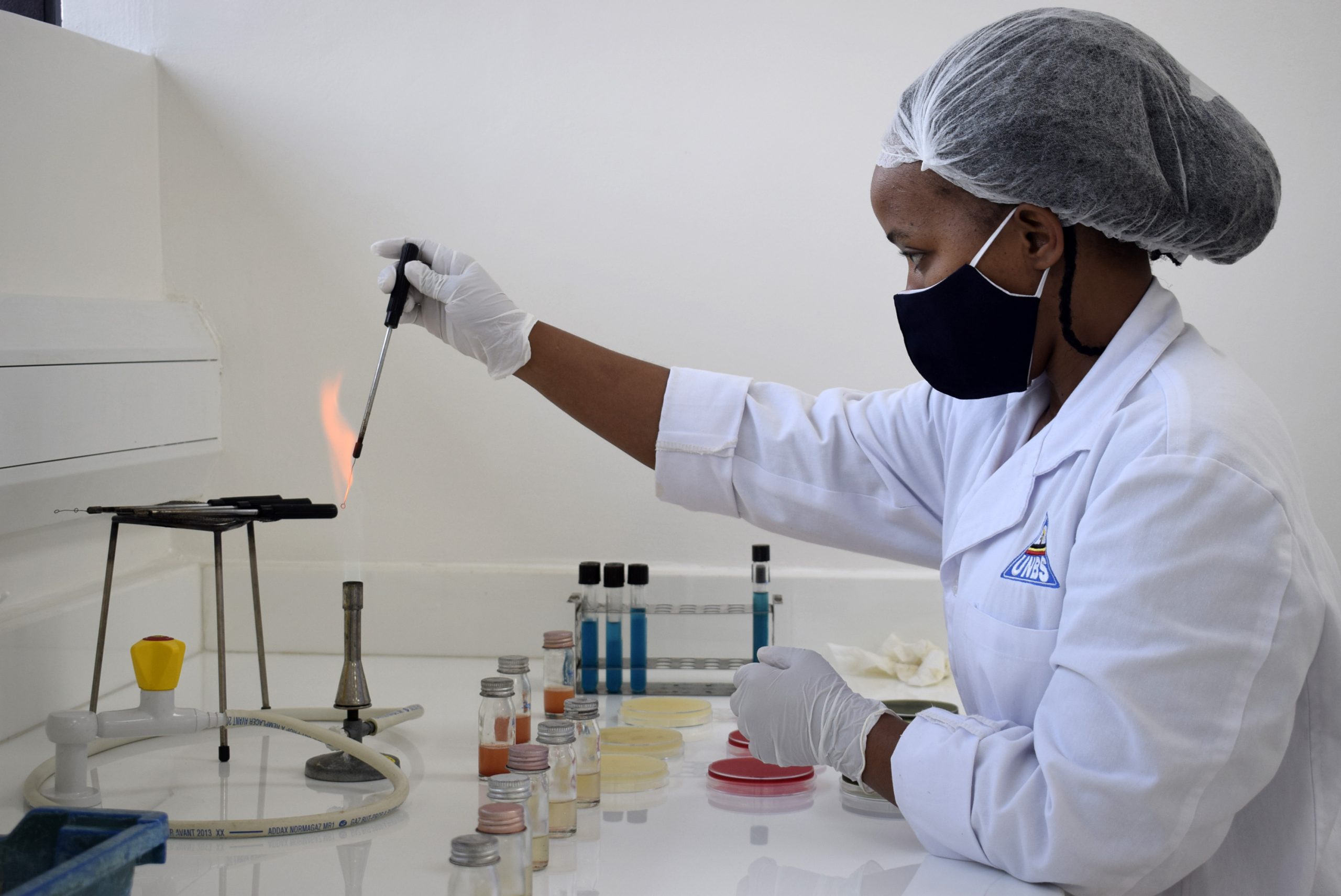Across the globe, countries are seeking to accelerate economic growth by leveraging their dynamic and large populations to achieve a demographic dividend. Yet, one challenge remains – employment prospects are not expanding fast enough to deliver adequate jobs.
Nonetheless, in Uganda, we are privileged to have a strong culture of entrepreneurship, including among women, and one of only seven countries worldwide that has achieved gender parity in terms of the number of women driven to pursue entrepreneurial activities.
In recognition of the linkages between economic growth and gender issues as critical aspects for achieving the Millennium Development Goals, entrepreneurship can be used as a vehicle for Uganda to better leverage its productive potential, support job creation, and maintain economic stability.
With this in mind, the strengthening of the performance of enterprisers to serve as engines of job creation, inclusive growth, and poverty reduction is a critical policy priority for Uganda. A particular focus on supporting women-owned enterprises is crucial as recently, the Fourth Edition of the Mastercard Index of Women Entrepreneurs ranked Uganda at (38.2 percent) of total female business owners – an indication that nearly four in every 10 business owners in Uganda are women, who make up 52.5% of the labour force.
Similarly, the Uganda Investment Authority indicates that women’s share of microenterprises is considerably larger than their share of small and medium enterprises. MSMEs contribute approximately 30% of Uganda’s Gross Domestic Product (GDP) and employ more than 2.5 million people.
Although women entrepreneurs own at least 31 percent of all registered Small and Medium Enterprises (SMEs) in Uganda (SMEs make up at least 70 percent of the economy, contributing 20 percent of GDP), a recent World Bank report, profiting from parity, shows that women entrepreneurs continue to earn lower profits than men (34 % less on average).
This stark gender gap in earnings is caused not by differences in the innate abilities of men and women entrepreneurs but rather by the gender-specific constraints that women face in starting, sustaining, and growing their enterprises, including contextual factors such as legal discrimination; restrictive gender norms; endowments such as education and skills; confidence and risk preferences; access to finance, assets, networks, and information; including household constraints.
These numbers, therefore, disclose an accustomed story of deficiency in as much as access to finance for women entrepreneurs. It is therefore a compelling opportunity for Ugandan banks to expand their SME lending portfolios while becoming innovative leaders in critical private sector development.
Presently, a large number of unskilled people, particularly women and youth are engaged in the distribution of goods and services for local supply chains. The emergence of large market chains brings a great opportunity to the benefit of producers, suppliers, and consumers – thereby increasing food security and alleviating rural poverty. Unfortunately, most of the bulk sold in is imported, even though suppliers of local produce have shown the ability to supply market chains, they are limited in realizing market demands and standard requirements.
To unlock the potential of women entrepreneurs in Uganda, a comprehensive package is needed to address key barriers. This may stretch as far as supporting a multi-sectoral program of customized services that empower women entrepreneurs and transition their enterprises from micro to small and, from small to medium and large.
In light of this, the Government of Uganda has launched an ambitious development agenda in its third National Development Plan (NDP III) aimed at increasing household incomes by more than 50 percent (over baseline levels in 2017/2018) and improving the quality of life of Ugandans through sustainable industrialization for inclusive growth, employment, and sustainable wealth creation by 2024/25.
Therefore, promising policy interventions accelerating Uganda’s progress toward its development objectives will require efforts to strategically target and lift the constraints facing women entrepreneurs to enhance their productivity and earnings and to close the gaps in business performance. In this regard, to address the drivers of the gender gaps, the government is implementing policies and programs focused on enhancing women’s entrepreneurial skills to spur innovation; improving women’s use of and control over capital; addressing sectoral gender segregation; and supporting the livelihoods of the smallest scale, the poorest, and the most vulnerable entrepreneurs.
Bundled social protection programs—such as cash grants, life skills and entrepreneurial training, and savings groups are utilized to address a range of constraints faced particularly by women entrepreneurs operating small-scale enterprises.
Advanced digital systems such as mobile money and digital banking are further ensuring that women receive cash transfers quickly and securely, safeguarding the benefits of these interventions for women.
To this day, the Government of Uganda has set up initiatives such as The Uganda Women Entrepreneurship Programme (UWEP), which is aimed at improving access to financial services for women and equipping them with skills for enterprise growth, value addition and marketing of their products and services.
A gender-sensitive legal and regulatory system that advances women’s economic empowerment, regulatory and legal environment continues to support women to gain access and be able to claim the same economic rights as men.
There are also provisions for larger loans for women entrepreneurs, as loan products less reliant on collateral continue to make it possible for women entrepreneurs to borrow more, leverage more growth opportunities and improve enterprise performance. Women entrepreneurs who cannot afford to borrow large sums of money have been provided with the option to access the loan through a group structure.
For extremely poor female entrepreneurs, bundled economic inclusion interventions, which pair cash grants with complementary interventions have proven effective at developing sustainable livelihoods. An important feature of these programs is that they can tackle the multiple constraints often faced by the most vulnerable women. The women are also bound to experience improved social and financial support, higher trust, and greater capacity for collective action.
Products, such as mobile money, continue to offer an alternative, enabling quick and secure cash transfers, improving women’s control over their incomes, and helping them weather income shocks.
Over the years, Uganda has realized projects like Generating Growth Opportunities for Women Uganda which represents the largest and most comprehensive effort to support women’s economic empowerment in the country under the leadership of the Ministry of Gender, Labour, and Social Development in conjunction with the Private Sector Foundation in Uganda. It is expected that projects such as these will create a solid platform for dialogue, exchange of experiences and action towards women’s economic empowerment.
With the introduction of an engendered National Export Strategy, an initiative to engage more women in export activity, comprehensive export-readiness training programmes and intensive efforts are availed to help women upgrade the quality of their products and production processes to meet international standards.
There are also nascent efforts to introduce women entrepreneurs to technological innovations and opportunities to develop technology-based businesses and new businesses in technology-driven sectors, and these continue to expand.
As an enabler, Information and Communication Technology (ICT) presents an important opportunity for productivity growth, innovation and new economic activities for women-owned MSMEs. Leveraging technology, women entrepreneurs are overcoming barriers and constraints in gaining access to information, knowledge and skills, conducting business and financial transactions, overcoming mobility constraints, accessing new markets, and developing new relationships.
There have also been massive efforts to develop new or upscale existing effective programmes to provide technical assistance to women entrepreneurs to upgrade the quality of their products for domestic, regional and international markets, including improved packaging and promotion, upgraded production equipment and labour-saving technology.
It is therefore vivid that Government continues to have increased efforts to promote trade fairs and other trade-related activities among women entrepreneurs so that they can establish Business to Customer and Business to Business linkages.
Supporting their access to market opportunities, technology and growth sectors continued to aid women in transition from low barrier-to-entry and low-yield markets to businesses with higher growth potential that generate jobs and decent employment and can be more competitive and sustainable.
Leveraging existing events such as the Month of the Woman Entrepreneur, Uganda continues to identify and publicly recognize, through awards, women entrepreneurs who have excelled in different areas of entrepreneurial performance to promote role models for younger women and contribute to challenging cultural stereotypes.
Markedly, participation in trade fairs and exhibitions such as the Buy Uganda Build Uganda (BUBU) Annual Exhibition is one way the Government has improved accessibility to more competitive and lucrative national and international markets. Opportunities for women entrepreneurs to engage in exporting activity are enhanced by the presence of African trading blocs and the successful Fair-Trade Movement globally.
Accelerated efforts are henceforth needed to reach more women entrepreneurs with export readiness programmes to build their capacity and to target the upgrading of their product quality and marketing.









